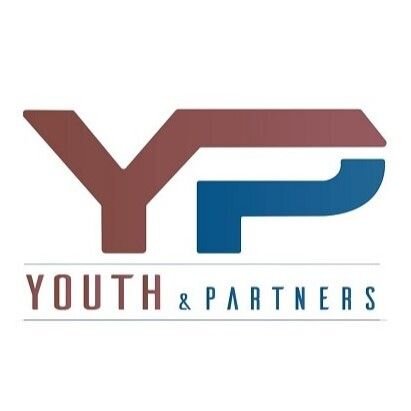Best Foreclosure Lawyers in Vietnam
Share your needs with us, get contacted by law firms.
Free. Takes 2 min.
Free Guide to Hiring a Real Estate Lawyer
Or refine your search by selecting a city:
List of the best lawyers in Vietnam
About Foreclosure Law in Vietnam
Foreclosure in Vietnam involves the legal process through which a lender seeks to recover the balance of a loan from a borrower who has stopped making payments. The ownership of the property used as security for the loan is transferred, usually through sale. In Vietnam, foreclosure is subject to the country's Property and Land Use Law, which can be complex due to various regulations governing the repossession and sale of property.
Why You May Need a Lawyer
Legal assistance may be necessary in foreclosure situations due to the complexity and high stakes involved. Common scenarios where legal help may be required include:
- Understanding your rights and obligations under the loan agreement.
- Challenging the legality of a foreclosure notice.
- Negotiating with lenders for loan modification or restructuring.
- Participating in court proceedings related to foreclosure.
- Assisting in the sale of the property to avoid foreclosure.
- Navigating potential criminal implications if there are allegations of abuse or fraud.
Local Laws Overview
Foreclosure in Vietnam is governed by several key pieces of legislation:
- Land Law: Regulates land use rights and the transfer of such rights, including foreclosure procedures.
- Civil Code: Addresses obligations, secured transactions, and property rights crucial in foreclosure cases.
- Resolution No. 42/2017/QH14: Specific guidelines for dealing with bad debts and secured assets, helping banks recover loans.
- Decree No. 21/2021/ND-CP: Provides further regulation on secured transactions, impacting foreclosure procedures.
Frequently Asked Questions
What is the first step in the foreclosure process in Vietnam?
The foreclosure process typically starts when a borrower defaults on their loan. The lender issues a notice of default, giving the borrower an opportunity to resolve the issue or face the sale of the secured property.
Can I negotiate to avoid foreclosure?
Yes, borrowers can negotiate with lenders for loan restructuring, modification, or alternative repayment plans to prevent foreclosure. Legal assistance can be beneficial in these negotiations.
How long does the foreclosure process take?
The duration of the foreclosure process can vary depending on specific circumstances and legal actions taken. It typically ranges from several months to over a year.
Is it possible to stop the foreclosure process once it has started?
Stopping foreclosure is challenging, but not impossible. Borrowers may negotiate new terms or pay off the outstanding debt to halt the process.
What happens after a foreclosed property is sold?
After the sale, proceeds are used to pay off the loan. Any remaining balance (or deficiency) may still require payment unless negotiated otherwise.
Do I have to vacate immediately after foreclosure?
Not necessarily. After a successful foreclosure, there may be a grace period for vacating the property. This must be clarified with a legal advisor.
Are there alternatives to foreclosure?
Yes, alternatives include selling the property preemptively, refinancing the loan, or negotiating a deed in lieu of foreclosure.
What is the role of a lawyer in foreclosure defense?
A lawyer can provide critical insights into the legal process, assist in negotiations with the lender, and ensure that the borrower's rights are protected.
How can a foreclosure impact my credit score?
Foreclosure can significantly affect your credit score, making it difficult to obtain future loans or achieve favorable financial terms.
Can a foreclosure lead to criminal charges?
Foreclosure primarily relates to civil law, but involvement in fraudulent activities during the process could result in criminal charges.
Additional Resources
For those needing additional information or assistance, the following resources may be helpful:
- Vietnam Banks Association (VNBA): Offers insights into debt recovery policies and procedures.
- Ministry of Natural Resources and Environment: Provides information on land use rights and property laws.
- Law Firms Specializing in Real Estate and Finance: Local legal experts who can provide tailored advice.
- Legal Aid Centers: Governmental and non-governmental centers offering free or low-cost legal services.
Next Steps
If you are facing foreclosure and require legal assistance, consider the following steps:
- Contact a legal professional specializing in foreclosure law to discuss your case and explore your options.
- Gather all relevant documents, including loan agreements, payment records, and foreclosure notices, for your consultation.
- Act promptly to explore available alternatives, such as negotiating with your lender, to limit the impact on your financial health.
Understanding your rights and seeking timely legal guidance can greatly influence the outcome of your foreclosure situation.
Lawzana helps you find the best lawyers and law firms in Vietnam through a curated and pre-screened list of qualified legal professionals. Our platform offers rankings and detailed profiles of attorneys and law firms, allowing you to compare based on practice areas, including Foreclosure, experience, and client feedback.
Each profile includes a description of the firm's areas of practice, client reviews, team members and partners, year of establishment, spoken languages, office locations, contact information, social media presence, and any published articles or resources. Most firms on our platform speak English and are experienced in both local and international legal matters.
Get a quote from top-rated law firms in Vietnam — quickly, securely, and without unnecessary hassle.
Disclaimer:
The information provided on this page is for general informational purposes only and does not constitute legal advice. While we strive to ensure the accuracy and relevance of the content, legal information may change over time, and interpretations of the law can vary. You should always consult with a qualified legal professional for advice specific to your situation.
We disclaim all liability for actions taken or not taken based on the content of this page. If you believe any information is incorrect or outdated, please contact us, and we will review and update it where appropriate.
Browse foreclosure law firms by city in Vietnam
Refine your search by selecting a city.
















